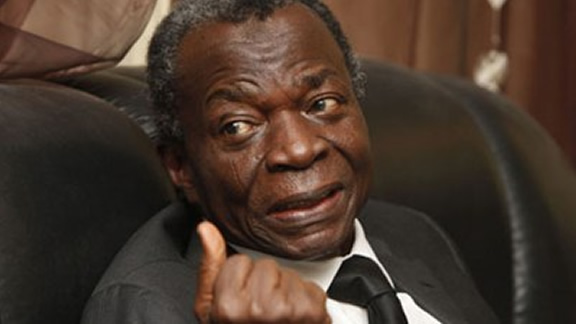
A former President of the Court of Appeal, Justice Ayo Salami (retd.), on Thursday said he rejected the appointment as the Chairman of the Anti-Corruption Cases Trial Monitoring Committee set up by the National Judicial Council because it was not in his interest as he does not need it.
He denied a report in a national newspaper that had earlier reported on Thursday that Salami rejected the appointment because of some persons included as members of the committee.
But in an interview with Punch Newspaper, Salami stated his reason and hinted that he had sent a formal letter to the appropriate authorities to that effect.
He said the NJC and the courts abandoned him during his trying time while making a veiled reference to the former President Goodluck Jonathan administration’s refusal to reinstate him as the President of the Court of Appeal despite NJC ’s recommendation that he should be returned to office.
“I rejected the appointment because it is not in my interest”, he reportedly said.
When pressed further to elaborate on ‘not being in his interest’ he said, “It is because I don’ t need it”.
When told that it was reported that his rejection of the appointment was because of some persons appointed to work with him as members of the committee, Salami said “It is not; I don’ t just feel like doing it. it is not because of anybody.”
When reminded that the judiciary needs his help to remove the obstacles hindering successful prosecution of high profile corruption cases, Salami queried, “Where was the judiciary when they were harassing me? Where was the court when they were harassing me?”
The CJN had on September 18 announced sweeping reforms to fight corruption on the bench and to better position the judiciary to fairly and expeditiously determine corruption and financial crime cases.
One of such mechanisms , Justice Onnoghen had said , would be the creation of Anti -Corruption Cases Trial Monitoring Committee to monitor and enforce the new policies.
One of such new policies announced by CJN was the designation of special courts for corruption and financial crimes.
The CJN also directed all heads of courts to compile and forward to the NJC lists of all corruption and financial crime cases being handled by their various court.
He added that heads of various courts, including the Supreme Court had also been directed to “clamp down” on both prosecuting and defence lawyers, who tried to stall criminal cases.
The CJN also directed heads of court to report such cases to the NJC, which would , in turn, report it to the Legal Practitioners ’ Privileges Committee , in the case of senior advocates ; and to the Legal Practitioners’ Disciplinary Committee in the case of other legal practitioners.
He was worried about concerns expressed by members of the public on the very slow speed corruption cases in particular were being heard or determined by courts.
The monitoring committee to be set up by the NJC is expected to monitor the new policies.
The CJN had said , “In this regard , we have just directed heads of court to clamp down on both prosecuting and defence counsel who indulge in the unethical practice of deploying delay tactics to stall criminal trials.”